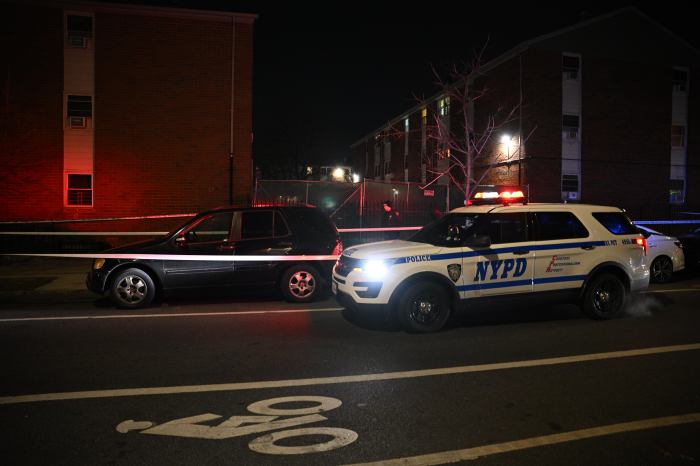By Brian Lockhart
Mosquitoes infected with the West Nile virus have been discovered in Bayside, but the city Health Department said the find was not unexpected and the bugs may not be able to transmit the disease to humans.
The news came last Thursday in a statement issued by the Health Department, which said the Atlanta-based Centers for Disease Control found hibernating mosquitoes collected at Fort Totten had “low but detectable levels” of the West Nile virus in their systems.
The mosquitoes were collected from enclosed rooms built into a hillside at the historic fort.
The Health Department, however, noted no live virus was recovered during laboratory testing, an indication the mosquitoes may not be capable of transmitting it.
A dead, red-tailed hawk found in Westchester County also showed traces of the virus, health officials there announced Tuesday.
The exotic virus was detected for the first time in the Western Hemisphere in New York and surrounding regions last August. It claimed the lives of four elderly northeast Queens residents, sickened 42 others throughout the city, killed hundreds of susceptible crows and triggered a citywide pesticide war on mosquitoes still being questioned by anti-pesticide activists and local elected officials.
In last week's statement, city Health Commissioner Neal Cohen said “although these findings do not necessarily mean that the virus will persist in the New York area, the city is working with the state, the CDC and other partners to proceed with its plan to prevent human cases.”
He said the city was continuing surveillance of the mosquito and bird populations, eliminating mosquito breeding sites and applying larvacides where necessary.
The city is also on the lookout for possible human cases of West Nile virus.
A health alert sent to area hospitals by Marcelle Layton, commissioner of the Health Department's Communicable Diseases Program and obtained by the Times/Ledger, said starting May 1 the Health Department would require physicians to immediately report by telephone all suspected cases of the virus.
The hospital alert also asked medical staff to be vigilant beginning in late April through the first sustained frost, the period when mosquito activity is most likely.
In his statement, Cohen noted hibernating mosquito activity was low during the colder weather and “it is not necessary for individuals to take personal precautions against mosquitoes at this time.”
He urged residents to eliminate areas of standing water such as old tires, buckets and unused containers, and to clean clogged gutters, swimming pools and bird baths.
Cohen also said pesticide spraying was not yet warranted.
Layton's hospital alert said “should a human outbreak occur and aerial spraying become necessary, detailed information on the pesticides that may be used will be provided to physicians and other health care providers and to the public.”
Pesticide opponents have contended that the city's spraying was a cure worse than the West Nile virus, and city health officials have argued any side effects were negligible in the face of the many more deaths the outbreak could have caused.
“While the efficacy and safety of these pesticides has been well-established with reports of pesticide-related illnesses being extremely rare,” read Layton's alert, “physicians should report any suspected cases of pesticide-related illness to the Poison Control Center.”
Such illnesses included exacerbation of asthma, nausea, vomiting, headache, allergic skin rash, eye irritation, muscle weakness and other neurological symptoms, according to the hospital alert.

































